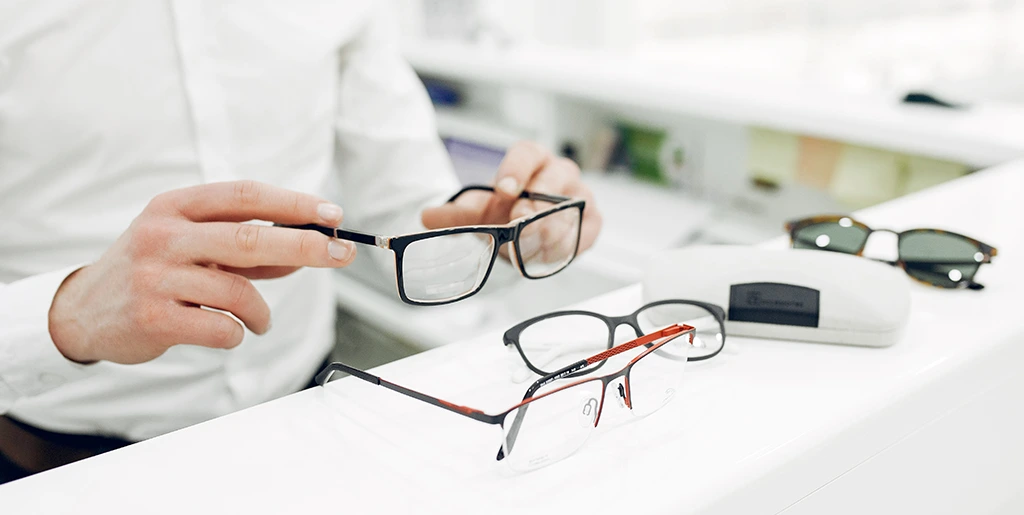
#LIVE2.0 #Review
Stats reveal that every 1 in 3,500-4,000 U.S citizens suffer from ‘Retinitis Pigmentosa’, a chronic disease of the eye resulting in a progressive degeneration of the retina leading them to legal blindness and vision loss.
On average, 1 in 3,750 individuals in the United States suffers vision problems
due to retinitis pigmentosa, also referred as ‘RP’.
The bad news is that there is no viable cure for the disease till date, but the good news is that advances in medical knowledge and progress in technology has led to some solutions aimed at helping RP patients have the best of their left over vision, such as the ‘IrisVision’.
However, due to lack of information, many people still doubt whether such a solution can really help with a degenerative eye disease like the retinitis pigmentosa. In fact, it does so and this write-up elaborates on how.
Now, to get a better idea of how IrisVision helps with vision of RP patients, you need to have a better understanding of both, the disease as well as the IrisVision. So, let’s begin with:
Retinitis pigmentosa is a broader term referring to a genetic eye disease inducing a gradual deterioration of the sight, affecting the night vision (your ability to see in the dark) and peripheral vision (your ability to see sideways while looking straight ahead) in its victims.
Retina, which hosts the photosensitive cells of the eye, is the first to sustain progressive damage due to RP. Rod cells, meant to help you with your night vision, are affected initially, with the damage progressing to the cone cells, responsible for your color vision and acuity.
The initial symptoms of the disease can be identified in a child as young as 10 years. Though different individuals exhibit varied patterns and intensity of RP, following symptoms can be observed typically:
A ‘genetic anomaly’ is the basic culprit behind this disease, which is inherited due to certain type of gene mutation resulting in any of the about 50 genes identified so far. Though external factors may interfere with the rate of disease progress, these are UNABLE to cause it.
It usually affects the eye in following three ways:
You can learn more about retinitis pigmentosa here. Now, let’s move to:
Registered and approved by the FDA as ‘Class-1 Medical Device’, IrisVision is the most cutting-edge, effective and affordable solution to retinitis pigmentosa and other degenerative eye diseases like age-related macular degeneration, glaucoma and diabetic retinopathy.
You can use this assistive technology with or without prescription glasses. It relies on a virtual reality headset to introduce low vision patients to sharper, clearer images using 12x zoom. With 70° field of view displayed inside of the VR headset through strong magnification features, you get an optimal view of the world around you, just like a large-screen TV right before your eyes.
It’s an amalgam of:
Smart Tech: The IrisVision low vision solution is a superb combination of Samsung’s revolutionary GearVR headset and Galaxy S8 smartphone. Relying on off-the-shelf, technically proficient components accessible easily to majority of customers, IrisVision electronic glasses cost exponentially lower than other custom-made devices.
Custom Software: IrisVision boasts of specially developed software aimed at expediting the technical superiority of the GearVR set, originally meant to support virtual reality, to a highly sophisticated and well orchestrated low vision solution.
Topnotch Camera Optics: Superior camera optics also play a vital role in establishing the supremacy of IrisVision glasses for legally blind by combining a 12 Megapixel camera and an advance LED display featuring 10x better resolution than the HDTV commonly available in your homes.
These special glasses for retinitis pigmentosa offer a well-sync combo of premiere quality Samsung VR headgear mounted with a latest smartphone specialized in capturing the images of the surroundings to offer the best possible view of a scene to the user. Some top features include:
One of the best, most unique and the most beneficial features designed specifically to facilitate people suffering from receded FOV, the RP mode (also helpful for glaucoma patients), is available only in IrisVision Retinitis Pigmentosa Glasses.
It helps improve your peripheral vision by shrinking your field of view, i.e. the camera lens captures a complete image and IrisVision’s intelligent algorithm squeeze the whole of it into your working field of vision, making it possible for you to view it despite your restricted FOV.
To conclude, though your degenerated area of retina (peripheral vision in case of RP patients) cannot be regenerated using IrisVision, it is one surefire way of working around it by making the most of the vision left over in your eyes. For instance, you can have a look at how IrisVision revolutionized the life of Ed, a Special Weapons Technician in the United States Navy who was suffering from retinitis pigmentosa.
You can always contact us here for further inquiries. Our experts would love to help you “See Clearly, Live Fully with IrisVision”.
Support
See and Connect Today!
IrisVision Global, Inc.
5994 W. Las Positas Blvd, Suite 101
Pleasanton, CA 94588
Email: [email protected]
Support: +1 855 207 6665
Support
See and Connect Today!
IrisVision Global, Inc.
5994 W. Las Positas Blvd, Suite 101
Pleasanton, CA 94588
USA Email: [email protected]
Support: +1 855 207 6665
Support
See and Connect Today!
IrisVision Global, Inc.
5994 W. Las Positas Blvd, Suite 101
Pleasanton, CA 94588
Email: [email protected]
Support: +1 855 207 6665